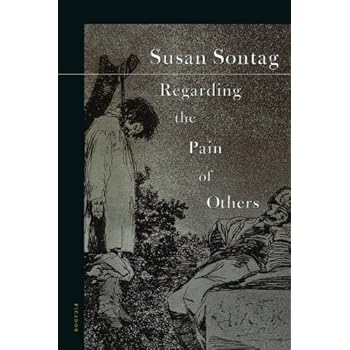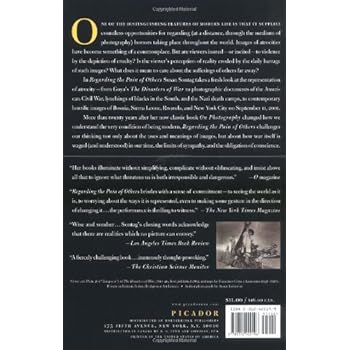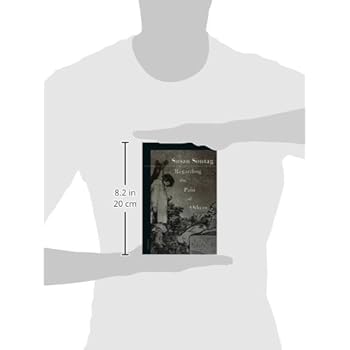Regarding the Pain of Others
Category: Books,Politics & Social Sciences,Social Sciences
Regarding the Pain of Others Details
Review “Wise and somber. . .Sontag's closing words acknowledge that there are realities which no picture can convey.” ―Los Angeles Times Book Review“The history of sensibility in a culture shaped by the mechanical reproduction of imagery....has always been one of the guiding preoccupations of her best work, from Against Interpretation to The Volcano Lover....Regarding the Pain of Others invites, and rewards, more than one reading.” ―Newsday“For 30 years, Susan Sontag has been challenging an entire generation to think about the things that frighten us most: war, disease, death. Her books illuminate without simplifying, complicate without obfuscating, and insist above all that to ignore what threatens us is both irresponsible and dangerous.” ―O, The Oprah Magazine“A timely meditation on politics and ethics. . .extraordinary . . .Sontag's insight and erudition are profound.” ―The Atlanta Journal-Constitution“Regarding the Pain of Others bristles with a sense of commitment--to seeing the world as it is, to worrying about the ways it is represented, even to making some gesture in the direction of changing it. . .the performance is thrilling to witness.” ―The New York Times Magazine“A fiercely challenging book. . .immensely thought-provoking.” ―The Christian Science Monitor Read more About the Author Susan Sontag is the author of four novels, The Benefactor, Death Kit, The Volcano Lover, and In America, which won the 2000 National Book Award for fiction; a collection of stories, I, etcetera; several plays, including Alice in Bed; and five works of nonfiction, among them Against Interpretation and On Photography, which won the National Book Critics Circle Award for criticism. Her books are translated into thirty-two languages. In 2001, she was awarded the Jerusalem Prize for the body of her work, and she received the Prince of Asturias Prize for Literature in 2003. Read more

Reviews
This is a short but thought-provoking contemplation on how we as viewers respond to photos/artwork that displays suffering, and what the motivations of the creators of such objects might be, both conscious and latent. This is the first work by Sontag I've read, though it probably won't be my last. Her writing is concise, clear, and sometimes masterly. She brings Joyce Carol Oates to mind, or at least their nonfiction works have a similar, probing style (and here I'm thinking of Oates' "On Boxing").This book focused primarily on photos/artwork related to war, which makes its scope perhaps smaller than I would have desired in a work with a title that sounds so sweeping. Therein lies my only quibble with a book that I would have otherwise awarded five stars. There is mention of everything from the Crimean War to Kosovo, but smaller incidents like the photos of the mass suicides of the Baader-Meinhof Group, for instance, receive no attention. Sontag is intelligent (that's an understatement) so I can't for the life of me figure out why she excludes non-war related images from the category of her titular "Pain" (the exception being lynchings in Jim Crow South).That, as previously mentioned, is a minor quibble with an otherwise flawless study. It bears mentioning that the work is shorter than I would have preferred it to be, if only because Sontag's lucid prose is a joy to read. She mentions another work of hers dealing with essays on photography at some point in the course of "Pain." I think I will have to seek that book out. Hopefully it's a little longer. In any case, recommended...




